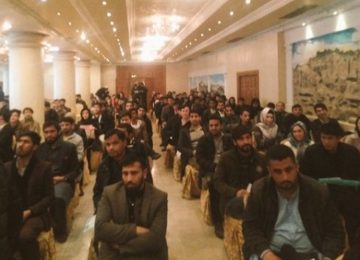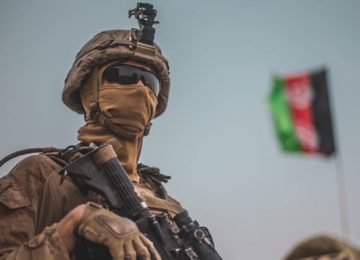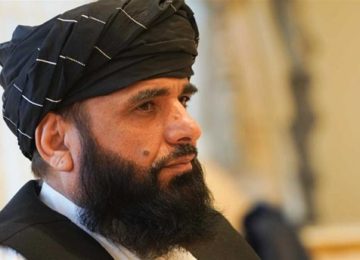By Tarique Hafeez
This op-ed explores Kandahar’s crucial role in fostering diplomatic engagement and peace efforts in Afghanistan, highlighting its historical, cultural, and strategic significance amidst ongoing challenges.
Nestled in the heart of southern Afghanistan, Kandahar has historically been a significant city in the country’s turbulent past. As the spiritual center of Afghanistan, since the Taliban movement emerged within it, Kandahar continues to shape regional dynamics and global strategies. With the international community looking forward to the third phase of the Doha Talks and the Islamic Emirate of Afghanistan (IEA) participating, Kandahar stands plenipotentiary in shaping the future of peace in Afghanistan. Experts have been analyzing how its potential can be utilized for diplomatic engagements with Afghanistan. NGOs, business stakeholders, and influential religious and tribal leaders view Kandahar as vital for Afghanistan’s strategic significance and diplomatic efforts.
Kandahar has been the economic heart of Afghanistan throughout history due to its proximity to the ancient Silk Route. It has been a hub of trade and commerce as well as a cultural center. Its geographical location, bordering South, Central, and West Asia, makes it a focal point for trade routes, military campaigns, and cultural exchanges.
It is the second-largest province in Afghanistan, with nearly one million residents. The province is adjacent to the active Chaman border in Pakistan, where a constant influx of refugees from Afghanistan to Pakistan and vice versa occurs. This makes Kandahar a center of human resources and a base for the humanitarian needs of Afghan refugees, with many victims being women and children.
With the rise of the Taliban, Kandahar has become the spiritual and political heart of the IEA. The supreme leader of Afghanistan’s de facto rulers, Mullah Haibatullah Akhundzada, is based here. Much of the Taliban’s power originates from the city, perceived as the practical capital of the Taliban government. Many members of the Taliban government are from Kandahar, making it a hub of concentrated power and an ideological center.
Understanding Kandahar’s significance involves analyzing its role in diplomatic engagements with Afghanistan. It has the potential to foster meaningful diplomatic engagement by involving key actors such as clergy, tribal leaders, INGOs/NGOs, humanitarian assistance missions, businesses, and influential stakeholders.
In a recent event organized by the Centre for Research and Security Studies (CRSS) in Islamabad, Dr. Qibla Ayaz, former Chairman of the Council of Islamic Ideology (CII), emphasized the need to connect Kandahar with the rest of the world. The discussion recognized Kandahar as crucial for political, economic, and social matters and for reaping the benefits of Track II diplomacy – a solution for stalemates in government-to-government communication.
Kandahar is home to Afghanistan’s tribal cultures and traditions, which have much to share with neighboring Pakistan. Religious scholars from both sides have shared cordial ties for decades. The clergy from both sides see sustainable peace as crucial for both nations, as the region suffers from a deteriorated bilateral relationship due to challenges such as lack of communication, historical baggage, trade barriers, and militancy. “Our common sufferings can unite us and help create a solid diplomatic channel, bridging the gaps between the two neighbors. To get closer to Kandahar and initiate a policy discourse, Pakistan must take the lead, and then the rest of the international community will follow,” says an esteemed scholar from Kandahar.
Key stakeholders view Kandahar as the focal point for solution-centric dialogue, whether with neighbors like Pakistan or the international community.
Despite efforts to stabilize Afghanistan, Kandahar faces significant challenges, including concentrated Taliban influence, tribal rivalries, and frequent border closures. These factors complicate international engagement efforts aimed at fostering peace and development. Kandahar’s potential is further minimized by international sanctions, leading to diplomatic deadlock. However, the city presents opportunities for grassroots reconciliation and unofficial/informal, stakeholder-driven initiatives that can contribute to the long-term stability of Afghanistan and the region.
In conclusion, Kandahar’s historical, cultural, and strategic significance elevates its role in Afghanistan’s engagement with the international community. As efforts continue to explore the complexities of peace and diplomacy in Afghanistan, the city stands as a symbol of both possibilities and obstacles on the path to sustainable peace and prosperity in the region. Its pivotal position underscores the need for concerted global efforts to leverage its potential effectively. Whether these efforts prevail over the challenges will depend on how effectively global actors prioritize regional peace and international cooperation.
AUTHOR

Tarique Hafeez is a graduate in History from Quaid I Azam University Islamabad and Shawnee State University, Portsmouth Ohio. His interests include women studies, regional politics and sustainable development. He contributes to Matrix. As a public speaker and youth activist, he has previously represented Pakistan in International Declamation Contests.








